August 21, 2014 •
North Carolina General Assembly Adjourns
After 163 legislative days, the North Carolina General Assembly has adjourned sine die. The adjournment is several weeks overdue as legislators hotly debated such contentious issues as pay increases for educators and the dumping of coal ash. Photo of the […]
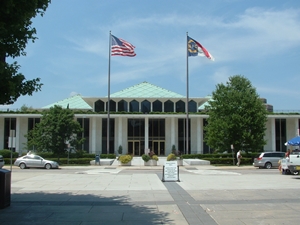 After 163 legislative days, the North Carolina General Assembly has adjourned sine die.
After 163 legislative days, the North Carolina General Assembly has adjourned sine die.
The adjournment is several weeks overdue as legislators hotly debated such contentious issues as pay increases for educators and the dumping of coal ash.
Photo of the North Carolina Legislative Building by Jayron32 on Wikimedia Commons.
August 20, 2014 •
Director of New Jersey ELEC Calls for Pay-to-Play Reform
Executive Director Jeff Brindle of the Election Law Enforcement Commission is calling for comprehensive pay-to-play reform after critics revealed a loophole in Trenton’s laws. The loophole became apparent after a South Jersey law firm was awarded a contract with the […]
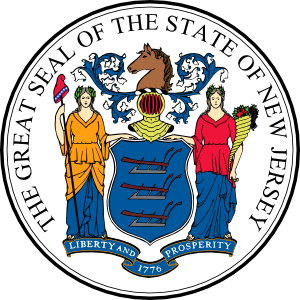 Executive Director Jeff Brindle of the Election Law Enforcement Commission is calling for comprehensive pay-to-play reform after critics revealed a loophole in Trenton’s laws. The loophole became apparent after a South Jersey law firm was awarded a contract with the city worth up to $20,000.
Executive Director Jeff Brindle of the Election Law Enforcement Commission is calling for comprehensive pay-to-play reform after critics revealed a loophole in Trenton’s laws. The loophole became apparent after a South Jersey law firm was awarded a contract with the city worth up to $20,000.
One of the firm’s founding partners was serving as the treasurer of a PAC when the PAC donated $8,200 to the election campaign of Trenton Mayor Eric Jackson. Because neither the law firm nor any of its partners made a donation to the PAC, the contract award was not deemed a violation of the city’s pay-to-play law.
Critics, however, want the law revised to include such contract awards. Part of Brindle’s recommendations for reform include simplifying complex laws, creating a single pay-to-play law to apply to all governments at the state, county, and local levels, and prohibiting the pay-to-play loophole for publicly bid contracts.
August 20, 2014 •
Oklahoma Ethics Commission to Consider Rule Amendment
The Oklahoma Ethics Commission will consider a rule amendment permitting it to collect registration fees from lobbyists, lobbyist principals, political action committees, and candidate committees. The proposed amendment would also allow the executive director to establish and collect registration fees […]
 The Oklahoma Ethics Commission will consider a rule amendment permitting it to collect registration fees from lobbyists, lobbyist principals, political action committees, and candidate committees. The proposed amendment would also allow the executive director to establish and collect registration fees from those participating in training events or educational classes and seminars.
The Oklahoma Ethics Commission will consider a rule amendment permitting it to collect registration fees from lobbyists, lobbyist principals, political action committees, and candidate committees. The proposed amendment would also allow the executive director to establish and collect registration fees from those participating in training events or educational classes and seminars.
If the amendment is approved, the commission would be required to publish a fee schedule on July 1 of each year beginning in 2015. There will be a public hearing and possibly a vote on the proposed amendment during the September commission meeting.
August 20, 2014 •
Chicago Board of Ethics Submits Revised Rules to Council
The Board of Ethics formally submitted its revised Rules & Regulations to the City Council on August 19. The rules govern board activities in conformation with the provisions of the Governmental Ethics Ordinance. Unless the City Council, by majority vote, […]
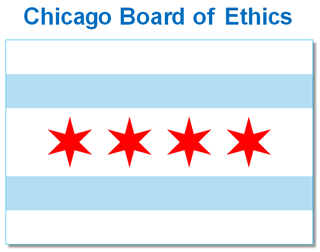 The Board of Ethics formally submitted its revised Rules & Regulations to the City Council on August 19. The rules govern board activities in conformation with the provisions of the Governmental Ethics Ordinance.
The Board of Ethics formally submitted its revised Rules & Regulations to the City Council on August 19. The rules govern board activities in conformation with the provisions of the Governmental Ethics Ordinance.
Unless the City Council, by majority vote, votes to disapprove them, the rules will become effective 45 days after submission.
August 20, 2014 •
Chicago City Council Amends Ethics Ordinance
On July 30, the Chicago City Council enacted amendments to the Governmental Ethics Ordinance, chapter 2-156 of the Municipal Code of Chicago. Changes include granting the Board of Ethics authority to review campaign finance filings and to refer potential violations […]
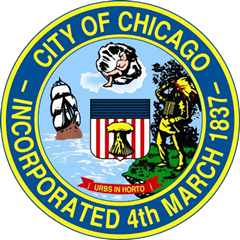 On July 30, the Chicago City Council enacted amendments to the Governmental Ethics Ordinance, chapter 2-156 of the Municipal Code of Chicago.
On July 30, the Chicago City Council enacted amendments to the Governmental Ethics Ordinance, chapter 2-156 of the Municipal Code of Chicago.
Changes include granting the Board of Ethics authority to review campaign finance filings and to refer potential violations to the appropriate investigating authority. Pay-to-play provisions have also been amended, affecting vendors, lobbyists, and any other person seeking to do business with the city.
Penalties are currently imposed only on the candidate, official, or employee accepting a prohibited contribution. Under the revised ordinance, however, the penalty provisions will also apply to persons making such contributions.
The amendments take effect September 10.
August 20, 2014 •
Citizens United Files Suit Against Colorado Secretary of State
On August 14, Citizens United filed suit in federal court against Colorado Secretary of State Scott Gessler. The lawsuit is a response to Deputy Secretary of State Suzanne Staiert’s June decision classifying the group’s upcoming documentary as a reportable electioneering […]
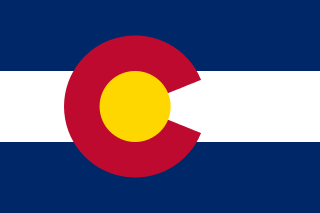 On August 14, Citizens United filed suit in federal court against Colorado Secretary of State Scott Gessler. The lawsuit is a response to Deputy Secretary of State Suzanne Staiert’s June decision classifying the group’s upcoming documentary as a reportable electioneering communication.
On August 14, Citizens United filed suit in federal court against Colorado Secretary of State Scott Gessler. The lawsuit is a response to Deputy Secretary of State Suzanne Staiert’s June decision classifying the group’s upcoming documentary as a reportable electioneering communication.
Citizens United had hoped the documentary would be excluded from the definition of reportable electioneering communication under a general press-entity exemption. Although the Federal Election Commission applies such an exemption for Citizens United at the federal level, the secretary of state lacked the authority to import the FEC’s analysis and decision.
Citizens United is now asking the court to permanently enjoin enforcement of applicable reporting and disclosure requirements in their entirety or, in the alternative, enjoin enforcement of the requirements as applied to Citizens United. The group argues its right to engage in political speech is significantly burdened while the rights of print media and broadcast facilities are not. Moreover, the group claims the reporting and disclosure requirements discriminate based on a speaker’s identity and, therefore, violate both the U.S. and Colorado constitutions.
August 20, 2014 •
Our Live Webcam at NCSL 2014!
State and Federal Communications is at NCSL 2014, August 19-22, 2014 in Minneapolis! Enjoy this live broadcast from our webcam at our booth #921.

August 20, 2014 •
WA Ethics Board Votes to Allow Legislators 12 Free Meals Per Year
The Washington Legislative Ethics Board has come to a preliminary conclusion as to how to define “infrequent occasions” as it relates to free meals accepted by the state’s legislators. Section 42.52.420 of the Revised Code of Washington allows public officials […]
 The Washington Legislative Ethics Board has come to a preliminary conclusion as to how to define “infrequent occasions” as it relates to free meals accepted by the state’s legislators. Section 42.52.420 of the Revised Code of Washington allows public officials to accept gifts in the form of food and beverage on infrequent occasions so long as attendance at such a meal is related to the performance of official duties.
The Washington Legislative Ethics Board has come to a preliminary conclusion as to how to define “infrequent occasions” as it relates to free meals accepted by the state’s legislators. Section 42.52.420 of the Revised Code of Washington allows public officials to accept gifts in the form of food and beverage on infrequent occasions so long as attendance at such a meal is related to the performance of official duties.
When the Legislature failed to pass any pertinent legislation defining infrequent occasions before its adjournment on March 13, 2014, the Legislative Ethics Board took up the issue. During its August 19, 2014, meeting, the board decided in a 5-3 vote to define infrequent occasions as 12 free meals per year. Under the proposed rule, a qualifying meal occurs when the guest would normally be expected to sit down and eat, such as in a restaurant or a private residence, as opposed to a legislative reception.
Other provisions of the rule, including a reporting requirement for legislators accepting free meals, are still under discussion. A final vote on the rule is scheduled for October 21, 2014.
A group called Grow Connecticut recently paid $193,000 to produce a television ad targeting incumbent democratic governor Dannel Malloy. The conservative super PAC made the ad buy on the same day the state’s Republican Party filed a complaint against the […]
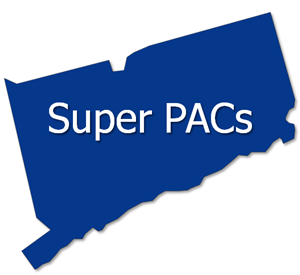 A group called Grow Connecticut recently paid $193,000 to produce a television ad targeting incumbent democratic governor Dannel Malloy. The conservative super PAC made the ad buy on the same day the state’s Republican Party filed a complaint against the Governor’s campaign and Connecticut Forward, a similar group, for illegal coordination.
A group called Grow Connecticut recently paid $193,000 to produce a television ad targeting incumbent democratic governor Dannel Malloy. The conservative super PAC made the ad buy on the same day the state’s Republican Party filed a complaint against the Governor’s campaign and Connecticut Forward, a similar group, for illegal coordination.
Connecticut Forward, created and funded by the Democratic Governor’s Association, has also paid over $100,000 in support of Governor Malloy. The recent activity by these two groups brings to light the influence of outside groups on publicly funded campaigns.
Both Governor Malloy and the Republican nominee, Tom Foley, are participants in the Citizen’s Election Program, which caps their campaign funds to a $6.5 million grant from taxpayers. The program was created in an attempt to insulate state campaigns from special interest groups. Groups like Grow Connecticut, however, are allowed unlimited independent expenditures, increasing the call for greater transparency through disclosure to the voters.
August 15, 2014 •
Ruling Expected in Maine Campaign Finance Suit
A ruling is expected in the coming days in a federal lawsuit challenging certain provisions of Maine’s campaign finance law. Four supporters of gubernatorial candidate Eliot Cutler sued the state of Maine, alleging minor parties, including independent candidates, are at […]
 A ruling is expected in the coming days in a federal lawsuit challenging certain provisions of Maine’s campaign finance law.
A ruling is expected in the coming days in a federal lawsuit challenging certain provisions of Maine’s campaign finance law.
Four supporters of gubernatorial candidate Eliot Cutler sued the state of Maine, alleging minor parties, including independent candidates, are at a disadvantage under sections 1015(1) and 1015(2) of Chapter 21-A of the Maine Revised Statutes. These provisions of law limit political contributions to a gubernatorial candidate from an individual, political committee, corporation, or business entity to $1,500 in any election.
Cutler is running as an independent and therefore did not participate in a primary election. As a result, the law only allows Cutler to collect $1,500 per contributor because he will only participate in the general election.
The plaintiffs are seeking both a preliminary and a permanent injunction to stifle enforcement of the $1,500 per election limit as applied to independent candidates. If U.S. District Judge D. Brock Hornby decides to enjoin the law, the injunction will apply to the 2014 election cycle.
Secretary of State Dianna Duran has dropped an effort to force Democratic gubernatorial candidate Gary King to return $10,900 in campaign contributions. Initially, Duran claimed the contributions violated campaign finance limits because donors were attempting to give for both the […]
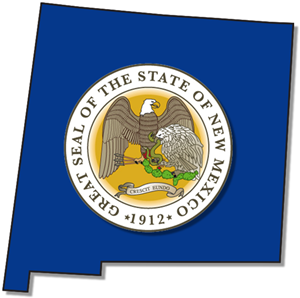 Secretary of State Dianna Duran has dropped an effort to force Democratic gubernatorial candidate Gary King to return $10,900 in campaign contributions. Initially, Duran claimed the contributions violated campaign finance limits because donors were attempting to give for both the primary and general election after the date of the primary election.
Secretary of State Dianna Duran has dropped an effort to force Democratic gubernatorial candidate Gary King to return $10,900 in campaign contributions. Initially, Duran claimed the contributions violated campaign finance limits because donors were attempting to give for both the primary and general election after the date of the primary election.
In a letter to King, Duran updated her position by stating the questionable contributions were permissible as long as King shows the post-primary contributions were used to retire debt from the primary election. Duran also expects King to provide statements from the contributors indicating part of their contributions were intended to help with the candidate’s primary debt.
The decision will likely make moot a legal action King filed against Duran set for hearing by the state Supreme Court.
August 15, 2014 •
See You at NCSL in Minneapolis!
Team State and Federal Communications is excited to be heading to NCSL’s Legislative Summit, August 19-22, 2014, in Minneapolis, Minnesota. Come see us at Booth 921! The NCSL website promises there will be “nothing Mini” about this conference: “Bring […]
Team State and Federal Communications is excited to be heading to NCSL’s Legislative Summit, August 19-22, 2014, in Minneapolis, Minnesota. Come see us at Booth 921!
The NCSL website promises there will be “nothing Mini” about this conference:
“Bring home 1,000 ideas from the land of 10,000 lakes this summer in Minnesota. For 40 years, the Legislative Summit is where legislators and staff come together across the aisle to tackle critical problems and find solutions that work…With more than 100 sessions, the time to dig deep into issues you care about, and opportunities to make new friendships and connections, you’ll come home brimming with ideas. So plan to be in Minneapolis Aug. 19-22. We’ll see you there, and together Build Strong States.”
August 15, 2014 •
News You Can Use Digest – August 15, 2014
Federal: GOP Looks to Shake Loose More Wall Street Cash Politico – Patrick Temple-West | Published: 8/13/2014 The Securities and Exchange Commission rule limiting some campaign contributions from investment firms violates free speech, two state Republican parties said in a lawsuit […]

Federal:
GOP Looks to Shake Loose More Wall Street Cash
Politico – Patrick Temple-West | Published: 8/13/2014
The Securities and Exchange Commission rule limiting some campaign contributions from investment firms violates free speech, two state Republican parties said in a lawsuit seeking to overturn the regulation. The rule bars an investment firm from managing a state’s assets for two years if the company, or certain of its executives, make more than a nominal donation to a state official with power over state contracts with investment advisors. The regulation forces investment advisers to make “an impermissible choice [between] exercising a First Amendment right and retaining the ability to engage in professional activities,” wrote the New York and Tennessee Republican parties.
Media Matters’ David Brock Expands Empire
Politico – Kenneth Vogel | Published: 8/14/2014
Democratic operative David Brock is now the chairperson of Citizens for Responsibility and Ethics in Washington (CREW). Brock’s arrival is part of a broader shakeup at CREW, with Melanie Sloan, the executive director and longtime leader of the organization, announcing she will step down. Brock confirmed the basics of the shakeup in an interview. The reconfigured CREW will add a more politically oriented arm, expand its focus into state politics and donor targeting, and will operate in close coordination with Brock’s fleet of nonprofits and super PACs: Media Matters, American Bridge, and the American Independent Institute.
White House Eases Lobbyist Ban
The Hill – Megan Wilson | Published: 8/12/2014
The Obama administration rolled back part of its ban on lobbyists serving in government. Under a new rule, registered lobbyists whom Obama had previously barred from serving on government advisory boards may now participate if they are representing companies or groups and not acting on their own behalf. The change was published in the Federal Register and took effect immediately. It comes after an appeals court rejected the administration’s efforts to dismiss a lawsuit by six lobbyists who challenged the ban’s constitutionality after being excluded from a trade advisory committee. The lobbyists said their First Amendment rights to petition the government had been violated.
From the States and Municipalities:
Arizona – How Public Financing Changed Politics in Arizona
Vox.com – Andrew Prokop | Published: 8/13/2014
Arizona voters in 1988 approved the public financing of campaigns. Under the Clean Elections Act, candidates for office are given public funds as long as they do not raise other money and abide by spending limits. Though reformers hoped this would help get money out of politics, some have argued clean elections model could actually lead to increased polarization and dysfunction. Michael Miller, a political science professor and author of the book Subsidizing Democracy, surveyed over 1,000 candidates for office in states with public financing systems about their experience. In an interview, Miller discusses Arizona’s law and his research.
Florida – Businessman Settles Ethics Complaint in Connection with Miami Beach Convention Center
Miami Herald – Joey Flechas | Published: 8/13/2014
The Miami-Dade Commission on Ethics and Public Trust said businessperson John Portman settled an ethics charge against him by agreeing to pay $2,000. Portman met with several Miami Beach commissioners from January 2013 to July 2013 to talk about a project to redo the Miami Beach Convention Center, but did not register as a lobbyist until July. He was part of a group of architects and developers, Portman CMC, who were in the race for the convention center deal. Portman’s attorney told the ethics panel that Portman did not intentionally violate the city’s lobbyist-registration law because, as the company’s owner and principal, he did not know he had to register.
Florida – Florida Legislators Approve New Redistricting Map but New Challenge Is Expected
Miami Herald – Mary Ellen Klas and Michael Van Sickler | Published: 8/11/2014
The Florida Legislature approved a new congressional map that slightly modifies seven districts in an effort by the Republican-controlled body to comply with a judge’s order to redraw the lines without taking into account partisan advantage. A hearing on the map and its potential impact on the 2014 election is set for August 20, less than a week before the scheduled primary elections. Democratic-aligned groups, who took the map to court, are expected to argue the new boundaries do not make any significant changes and the lines were once again drawn behind closed doors.
Georgia – State Ethics Commission Hires 2 New Staff Lawyers
The Daily Report – Kathleen Baydala Joyner | Published: 8/12/2014
Robert Lane and Bethany Whetzel joined the Georgia Government Transparency and Campaign Finance Commission as staff attorneys. The two are tasked with analyzing complaints against elected officials. The pair join the agency in the wake of the commission settling several whistleblower lawsuits brought by former employees who claimed they were fired for investigating Gov. Nathan Deal.
Illinois – Former Red Light Camera CEO Indicted, Federal Probe Expands
Chicago Tribune – David Kidwell | Published: 8/13/2014
Former Redflex Traffic Systems Chief Executive Officer Karen Finley was indicted on corruption charges in a federal investigation of one of the nation’s largest red-light camera programs. Finley is accused of funneling nearly $600,000 in cash and other benefits to a now-retired Chicago official, John Bills, for his help in landing the firm $124 million in city contracts. Bills was charged in May with one count of bribery. In the new indictment, he faces additional charges, including extortion and filing false income tax returns. Also named the indictment is Martin O’Malley, a former Redflex company liaison. He faces a bribery charge for allegedly passing much of his $2 million Redflex compensation to Bills.
Maine – Federal Judge Hears Arguments on Maine Campaign Finance Donation Limits for Independents
Lewiston Sun Journal – Scott Thisle | Published: 8/12/2014
A federal judge heard arguments in a case challenging a Maine law that allows major-party candidates to accept $1,500 contributions from individuals for both the June primary and the general election, but does not restrict when that money must be spent. Independent gubernatorial candidate Eliot Cutler can collect a maximum of only $1,500, which his supporters claim in the lawsuit is unconstitutional. Jamie Kilbreth, the attorney representing Cutler’s supporters, said Maine’s law was clearly unfair. He also said it was in conflict with several U.S. Supreme Court and Circuit Court decisions in other states, including one from Colorado earlier this year.
North Carolina – McCrory Misstated Duke Energy Holdings, Sold Stock after Coal-Ash Spill
Raleigh News & Observer – J. Andrew Curless and Craig Jarvis | Published: 8/13/2014
North Carolina Gov. Pat McCrory filed a new ethics and economic disclosure that now makes clear he owned at least $10,000 of Duke Energy stock on the last day of 2013, reversing disclosure filings he made in April and May. The governor sold the stock after the Duke Energy plant in Eden spilled 39,000 tons of coal ash, into the Dan River. The crisis generated national news, put a spotlight on McCrory’s ties to Duke, where he worked for about 29 years, and prompted the governor and legislators to propose laws about cleaning up coal ash that Duke Energy says could cost the company as much as $10 billion over the next 30 years. A major reform bill has not passed the General Assembly.
Pennsylvania – Pa. Limits on PAC Donations Voided Due To Citizens United
Law360.com – Kelly Knaub | Published: 8/14/2014
U.S. District Court Judge William Caldwell struck down a Pennsylvania law that banned corporations and labor groups from donating more than $250 to expenditure-only political committees. Caldwell granted General Majority PAC’s bid to convert a preliminary injunction issued in March into a permanent one, agreeing with the group that the state law violated the First Amendment in the wake of the U.S. Supreme Court’s Citizen United decision.
Rhode Island – Fung Filmed Campaign Ad in Ohio
WJAR – Parker Gavigan | Published: 8/13/2014
A television ad for Rhode Island gubernatorial candidate Allan Fung says his state is “open for business” and showcases Fung in a diner. But the diner is in Ohio. The restaurant has been the setting for political commercials in the past, but the candidates are usually campaigning for office in Ohio or for president, said Michael Pappas of Tommy’s Diner in Columbus. “You’re trying to tout the fact that you believe in Rhode Island and business should come to Rhode Island but you travel all the way to Ohio to film your television commercial; so that just says to me, ‘What are you thinking?'” said Wendy Schiller, a professor at Brown University.
Rhode Island – Welcome to Rhode Island, America’s Least Polarized State
New York Times – Josh Barrow | Published: 8/13/2014
Political scientists Boris Shor and Nolan McCarty analyzed state legislative voting records from 1996 to 2013 and found Rhode Island had the least ideological difference between the typical Republican and Democratic lawmakers. It is common for Republican officials in heavily Democratic Northeastern states to be moderates. What makes Rhode Island stand out is the number of conservatives within its Democratic legislative supermajority. The median Democrat in Rhode Island was more conservative than in all but 13 state Legislatures.
Texas – Court: Texas PAC campaign waiting period unconstitutional
KROI – Brandon De Hoyos | Published: 8/13/2014
The U.S. Fifth Circuit Court of Appeals struck down a provision in the Texas Election Code that imposes a 60-day waiting period and 10-contributor requirement on PACs before they could spend more than $500. Groups defined by the Texas Ethics Commission as a “specific purpose” committee – organizations formed to support identified candidates – were not subject to a waiting period. The appeals court upheld a separate requirement that PACs must register before exceeding $500 in expenditures. The judges also rejected a narrow challenge to the state’s ban on corporate contributions.
 State and Federal Communications produces a weekly summary of national news, offering more than 80 articles per week focused on ethics, lobbying, and campaign finance.
State and Federal Communications produces a weekly summary of national news, offering more than 80 articles per week focused on ethics, lobbying, and campaign finance.
News You Can Use is a news service provided at no charge only to clients of our online Executive Source Guides, or ALERTS™ consulting clients.
August 14, 2014 •
Federal Judge Strikes Down Pennsylvania Campaign Finance Law
A federal judge in Pennsylvania struck down a state campaign finance law restricting the amount corporations and labor unions could donate to expenditure-only political committees. U.S. District Judge William W. Caldwell found Pennsylvania Election Code Section 3253(a) violates the First […]
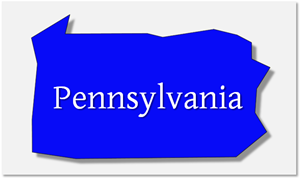 A federal judge in Pennsylvania struck down a state campaign finance law restricting the amount corporations and labor unions could donate to expenditure-only political committees. U.S. District Judge William W. Caldwell found Pennsylvania Election Code Section 3253(a) violates the First Amendment by limiting the amount a corporation or labor group can donate to political committees only making independent expenditures.
A federal judge in Pennsylvania struck down a state campaign finance law restricting the amount corporations and labor unions could donate to expenditure-only political committees. U.S. District Judge William W. Caldwell found Pennsylvania Election Code Section 3253(a) violates the First Amendment by limiting the amount a corporation or labor group can donate to political committees only making independent expenditures.
In his decision, Judge Caldwell cites to the Supreme Court decision Citizens United v. Federal Election Commission declaring limitations on independent expenditures made by corporations and labor unions restrict free speech.
The case, in the U.S. District Court for the Middle District of Pennsylvania, is General Majority PAC v. Aichele et al.
State and Federal Communications, Inc. provides research and consulting services for government relations professionals on lobbying laws, procurement lobbying laws, political contribution laws in the United States and Canada. Learn more by visiting stateandfed.com.

